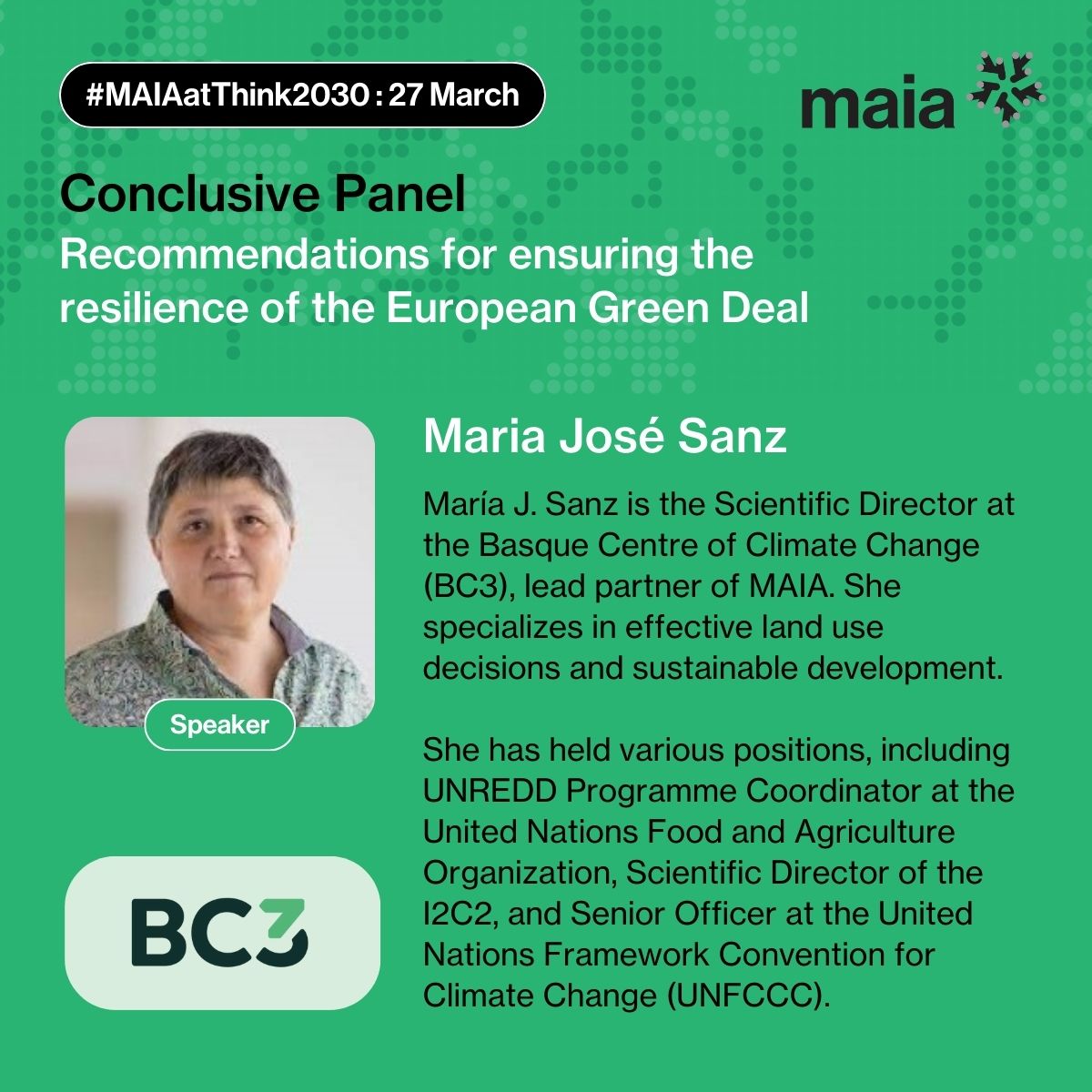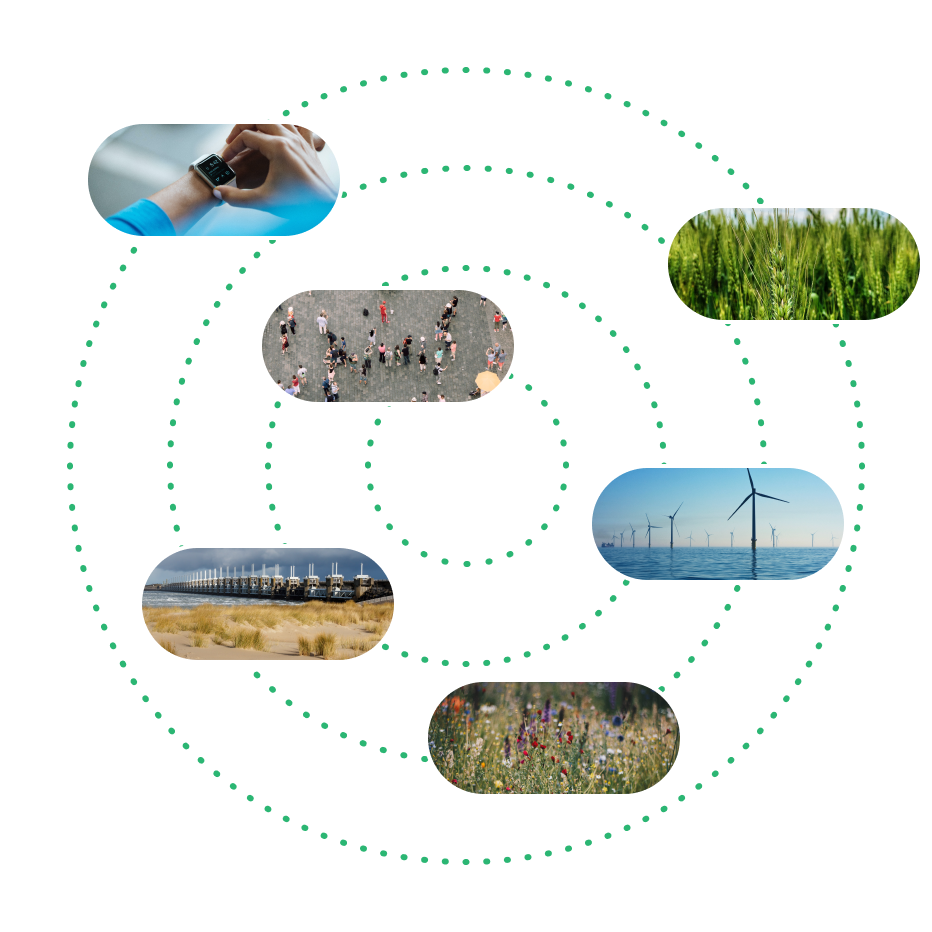Think2030 conference – Ensuring a resilient future for the European Green Deal

María José Sanz, the scientific director of the Basque Centre for Climate Change (BC3) and a leading partner of the MAIA project will be taking part in the Think 2030 conference organised by the Institute of European Environmental Policy (IEEP).
She will participate at the conclusive panel: “Recommendations for ensuring the resilience of the European Green Deal”. As a member of the Think Sustainable Europe network in Spain, Maria José will share her insights and recommendations for ensuring the resilience of the European Green Deal.
Speakers
- Ester Asin – Director, WWF European Policy Office
- María José Sanz – Scientific Director, Basque Centre for Climate Change (BC3), member of Think Sustainable Europe network in Spain
- Etienne Hannon – Science & Policy Manager, Belgium Climate Center
- Patrick Anthony Child, Deputy Director-General, DirectorateGeneral for Environment (DG ENVI)
- Chiara Martinelli – Director, Climate Action Network (CAN) Europe
Live Stream
Follow her participation on the Institute for European Environmental Policy AISBL YouTube channel

(0) Comments
There is no content